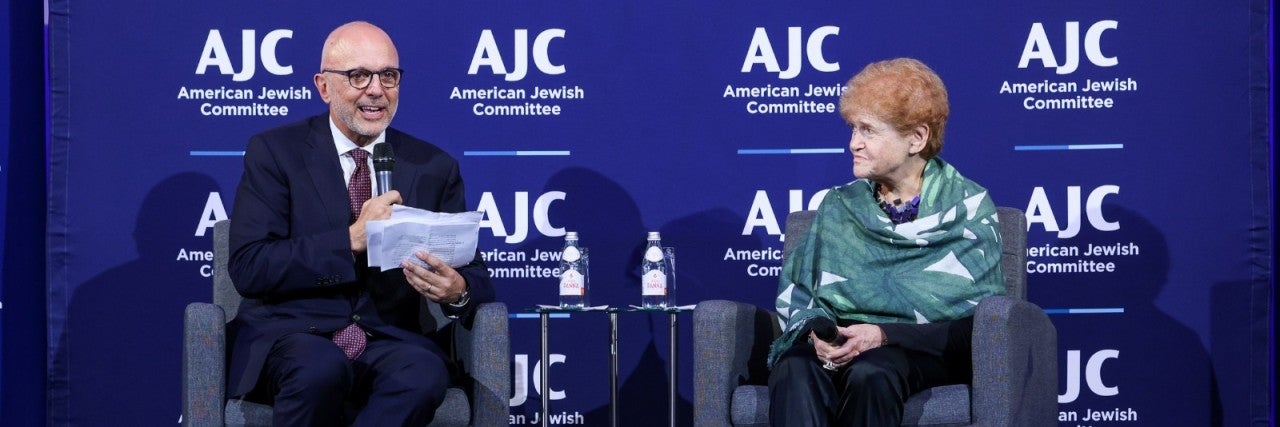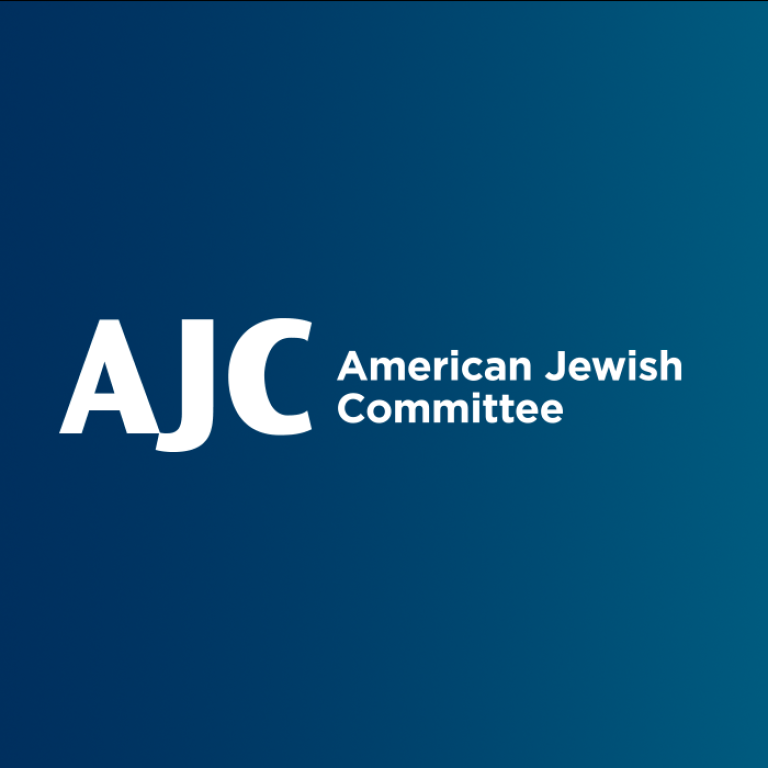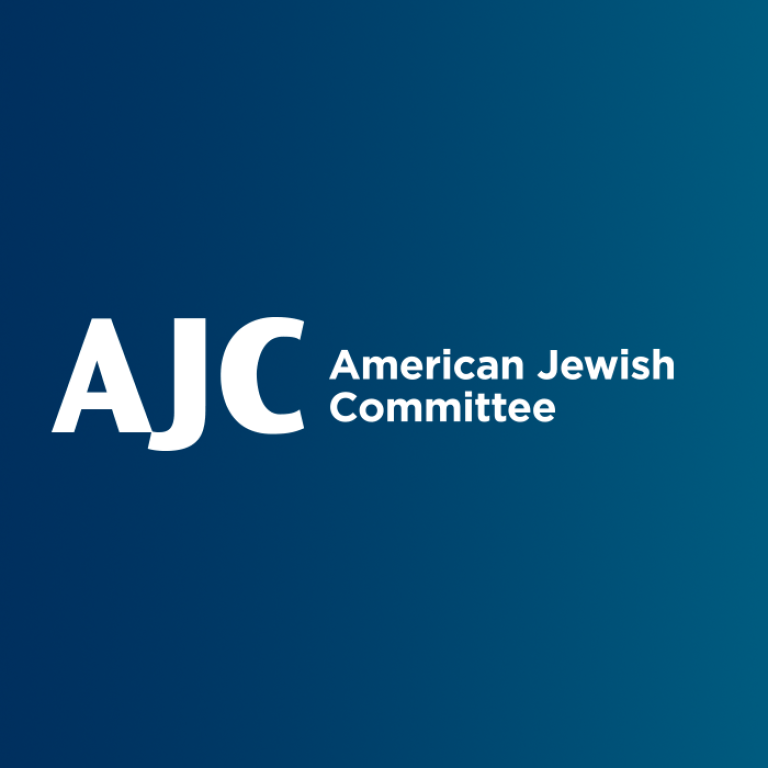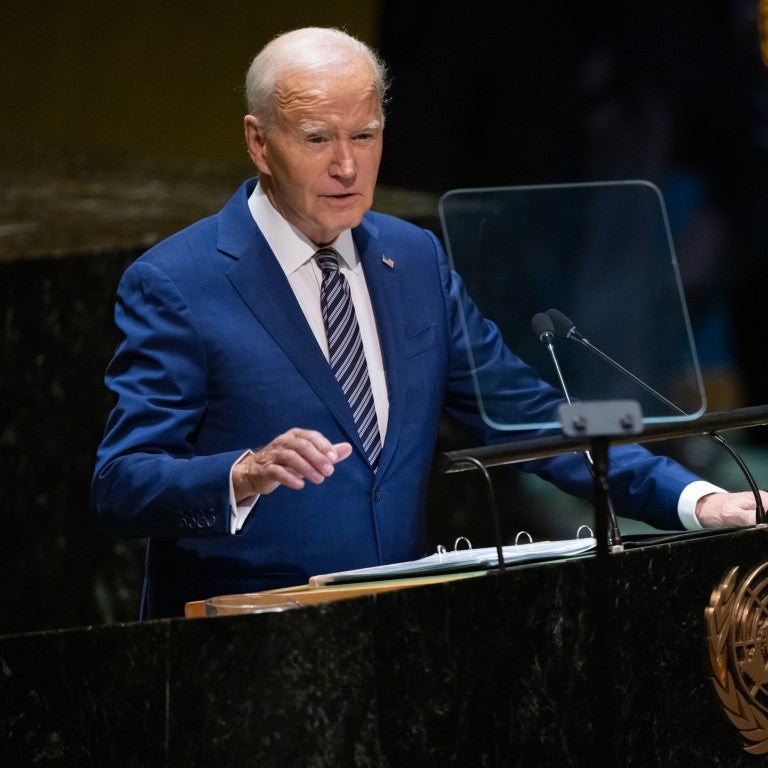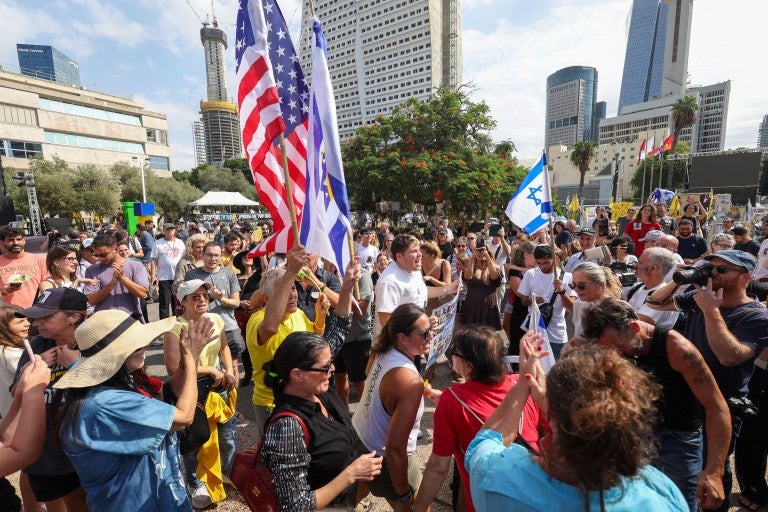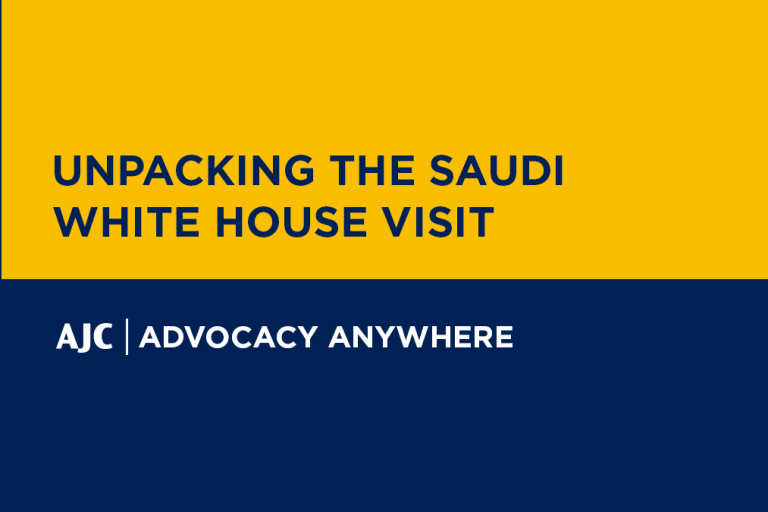September 28, 2023
Last week, world leaders gathered in New York for the United Nations UN General Assembly (UNGA) session. As the global advocacy organization for the Jewish people, AJC experts from around the world led the Jewish community’s diplomatic outreach.
Over the course of the week, AJC held meetings with over 85 world leaders to develop new friendships for Israel, confront the UN’s anti-Israel bias, mobilize world leaders to counter rising antisemitism, urge the international community to unite to stop Iran’s human rights abuses and its nuclear, terror, and weapons advancement, and strengthen and reinforce support for Ukraine as it fights against Russia’s invasion and its threats to democracy.
There are hundreds of insights gleaned from the over 85 meetings with world leaders that will inform AJC’s advocacy in the weeks, months, and years to come. Below are five key takeaways you should know.
- Taking the Abraham Accords to the Next Level
AJC has been engaging the Arab world for over 70 years with hopes of creating a more integrated, peaceful, and prosperous Middle East. With the creation of the Abraham Accords, AJC established AJC Abu Dhabi: The Sidney Lerner Center for Arab-Jewish Understanding as a critical link to help deepen and expand Israeli-Arab engagement, and further AJC’s pioneering work to strengthen Muslim-Jewish relations. But what’s next for the historic agreement? During our meetings with high-level officials from Abraham Accords countries, including a wide-ranging conversation with Israeli Foreign Minister Eli Cohen, AJC’s experts discussed the need to initiate and enhance economic and people-to-people ties between Israel and the Abraham Accords signatories.
What AJC is doing: As the organization that championed the vision of the groundbreaking Abraham Accords for decades, AJC is working closely with Abraham Accords nations to further commercial and people-to-people engagement. Earlier this month AJC brought a delegation of tourism and environmental experts from Israel, Bahrain, and the UAE to the U.S. for high-level meetings with government officials, the private sector, and civil society leaders.
- The Buzz Around Saudi-Israel relations
While His Royal Highness, the Crown Prince and Prime Minister of Saudi Arabia, Mohammed bin Salman Al Saud, was not in New York, the future of U.S.-Saudi and Israeli-Saudi relations was widely discussed. Speaking from the UN General Assembly podium, Prime Minister Netanyahu asserted, “There’s no question the Abraham Accords heralded the dawn of a new age of peace. But I believe that we are at the cusp of an even more dramatic breakthrough, a historic peace between Israel and Saudi Arabia. Peace between Israel and Saudi Arabia will truly create a new Middle East.”
Will you ace the quiz?
What AJC is saying: “After decades of outreach across the Arab world with the goals of advancing Muslim-Jewish understanding and Arab-Israeli cooperation, AJC is heartened by the increasingly public signs of progress in U.S. efforts to strengthen strategic ties with the Kingdom of Saudi Arabia and facilitate Saudi-Israeli peace. As in other historic undertakings, challenges remain, but AJC recognizes the commitment of the leaders who are pressing forward and will continue to do our part to prepare for a successful outcome.”
- The Latest on Combating Antisemitism
What’s happening with IHRA? AJC experts from throughout Europe used meetings with leading officials from the few European nations that have yet to adopt the IHRA Working Definition of Antisemitism to urge them to do so. What they heard was that these nations’ leaders are in fact seriously considering such a move, which AJC and the EU itself have long called for. The IHRA Working Definition has been endorsed as a tool by more than 1,100 entities, including dozens of countries, the European Parliament and the Council of the European Union, the United Nations Secretary-General, the UN Special Rapporteur on Freedom of Religion and Belief, and more.
Is there an update on the UN’s plan to counter antisemitism? In addition to the U.S. release of its unprecedented National Strategy to Counter Antisemitism in May of 2023, which followed a growing number of European country’s strategies, the UN had planned to follow suit with its own action plan. Originally the plan was to be presented in Spain in June, but an early draft engendered concern. In the intervening months, a new draft is being developed under the auspices of Miguel Moratinos, United Nations Under-Secretary-General and High Representative for the UN Alliance of Civilizations. Moratinos has looked to AJC, among others, for advice and guidance in that process, which is nearing completion.
Speaking at AJC’s Global Diplomacy Reception (the main Jewish event held during the UNGA), Ambassador Deborah Lipstadt, U.S. Special Envoy to Monitor and Combat Antisemitism, relayed that “The UN is drafting an action plan on antisemitism and I hope it will be a gamechanger… I hope it will be something that many people who have lost faith with the UN on this issue will regain some of that faith.” Amb. Lipstadt, a longtime friend of AJC’s, also praised AJC for its advocacy at the UN combating antisemitism and promoting human rights.
- Confronting Iran’s Multiple Threats
A major win on missiles: Prior to the start of the UNGA, Great Britain, France, and Germany said they would keep ballistic missile and nuclear proliferation-related sanctions on Iran that were set to expire in mid-October, a move AJC has long advocated. Throughout the UNGA, AJC continued pushing other nations to use all available measures to constrain Iran’s domestic ballistic missile production capabilities.
Room for action on the IRGC? In conversations with high-level officials from European Union nations, Iran’s Islamic Revolutionary Guards Corps (IRGC) was a major topic. Among some leaders from the bloc, there is a growing sense of realization of the need to confront the IRGC and its destructive role in Russia’s war in Ukraine, along with its security threat to Europe in general, especially European Jewish communities. The potential for action by the EU to label the IRGC a terrorist organization, a designation that carries with it restrictions that would hamstring the group, was a major point of emphasis.
- Deepening Israel’s Engagement in Africa
In recent years, Israel has been rapidly expanding its relations with Sub-Saharan Africa, including with major and emerging economies such as Rwanda, Nigeria, and Ethiopia. Building on this momentum at the UNGA, AJC held its largest number of meetings ever with leaders from Africa.
Israel's efforts in Africa encompass a range of areas aimed at strengthening ties and promoting development. Diplomatically, Israel has re-established relations with nations like Chad and Sudan and is working to facilitate economic and agricultural development, establish mutually beneficial business relationships, and normalize ties with other Sub-Saharan states
A major win: During the UNGA, the Democratic Republic of Congo (DRC) announced that it would move its embassy to Jerusalem and Israel announced it would reopen its embassy, shuttered since warfare in 2003, in Kinshasa. Last month, Sierra Leone and Paraguay also announced they would move their embassies to the Israeli capital.
The African Union: Israel obtained observer status in the African Union in 2021 after decades of diplomatic efforts. However, Israel was suspended after tensions within the international body flared earlier this year. In meetings with African leaders, there was support for Israel’s observer status being reinstated.
